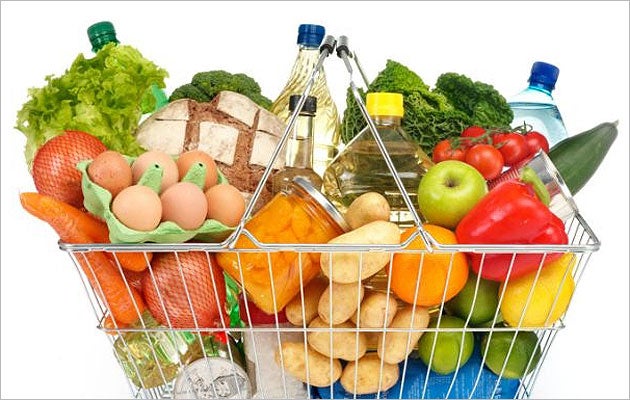Inflation takes fresh leap to 4.4 per cent

The official rate of inflation jumped by its biggest monthly amount since records began more than a decade ago to hit 4.4 per cent in July, figures revealed today.
Soaring food prices helped drive up the Consumer Prices Index from 3.8 per cent in June to the new high last month, the Office for National Statistics (ONS) said. The 0.6 per cent leap was the biggest monthly jump since records began in January 1997.
The benchmark cost of living measure is now more than twice the Government's 2 per cent target, and more than City estimates of 4.2 per cent for July.
The largest upward effect to the Consumer Prices Index (CPI) came from food and non-alcohol beverages, the ONS said, which rose 12.3 per cent in the year to July. It contributed just under half the monthly 0.6 per cent rise.
Within that grouping, bread prices surged 15.9 per cent during the year, meat products by 16.3 per cent and milk, cheese and eggs by 19 per cent, the data showed. Coffee and tea were 5.6 per cent higher.
There were also significant rises for electricity and gas - both running at 12 per cent higher than a year ago - and fuels and lubricants, which surged more than 25 per cent ahead. Energy bills fell this time last year, exacerbating the current inflationary impact.
Official inflation has now been above the Government's 2 per cent target mark since October last year.
The Retail prices Index (RPI) - which includes mortgage payments and is more commonly used for wage bargaining and pension payments, reached 5 per cent in July, up from 4.6 per cent. This is the highest level since July 1991, the ONS said.
Within RPI, mortgage interest payments and council tax were 5.4 per cent higher than a year ago.
The new inflation highs are likely to restrict the ability of policy makers at the Bank of England to cut interest rates for hard-pressed homeowners.
Oil price rises continued to exert a major influence last month. Crude peaked at more than 147 US dollars a barrel in the second week of July before retreating during the following month. Prices are now around a quarter of that level.
The ONS said the average price of petrol increased by 1.2p between June and July to stand at 118.8p. This compared with a fall of 0.4p during the same period last year.
Among the prices recorded as falling were clothing - down 7.3 per cent - footwear, which dipped 2.5 per cent, and second hand cars which were 5.7 per cent cheaper than a year ago.
But the ONS said the data showed that the levels of discounting normally seen in the summer sales were not as large as last year.
CPI is expected to approach the 5 per cent mark later this year, with hefty double digit hikes in electricity bills from EDF and British Gas last month adding to pressure.
Other recent price surveys have signalled that price rises continued last month. ONS data yesterday showed factory gate prices rose 10.2 per cent during the year to July.
Paul Kenny, general secretary of the GMB union, said: "Inflation is impacting on the economy differently in different sectors.
"Food manufacturing, for example, is being squeezed, leading to severe job losses.
"Other sectors like oil and energy are printing inflation by hiking prices.
"Even when their costs are falling they are slow to pass these lower prices to consumers.
"Motorists can see that there is 7 to 8 pence difference per litre in the price of diesel between petrol stations across the country. This is just a rip off.
"Action must be taken against this profiteering. Action must also be taken to stop damaging speculation in the oil market.
"If action is not taken it is inevitable that wages will have to rise in response to these higher prices."
Join our commenting forum
Join thought-provoking conversations, follow other Independent readers and see their replies
Comments
Bookmark popover
Removed from bookmarks